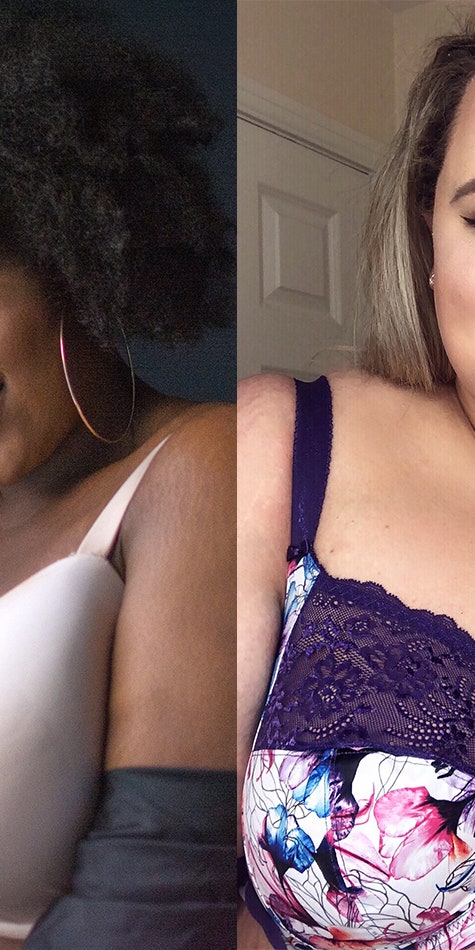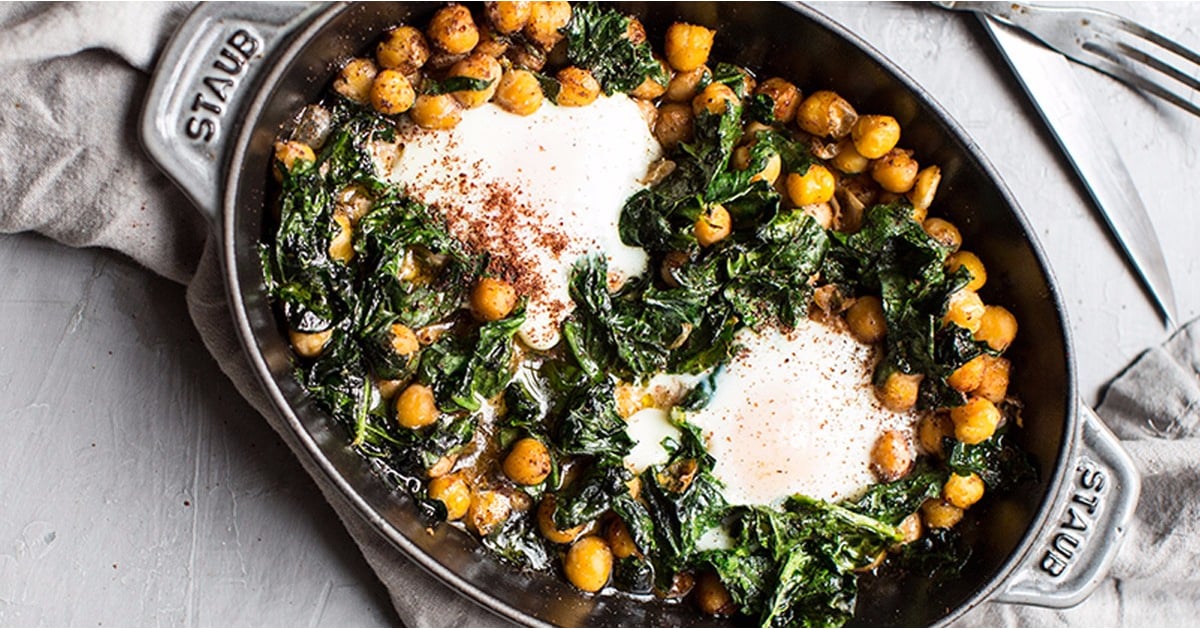A funny thing happens when you’re a dietitian. People get nervous about food when you’re around.
When I say people, I’m not talking about my clients in one-on-one counseling sessions, where food is obviously a focus. I’m talking about encounters with friends, family, coworkers, acquaintances, and everyone else I’m not actually working with.
Oftentimes I hear comments like:
“OMG the dietitian is here. Let me hide these cookies” or “I’m being bad and eating cake…LOOK AWAY” or even “Seeeee how good I am? I’m eating salad for lunch instead of enjoying tacos with everyone else.”
The thing is, as a dietitian, I’m not paying much attention to what you eat (unless you’re my client, in which case you’ve asked me to do just that). But what I do notice is how people eat, what their relationship with food is like, and whether external rules govern the way they eat. So when I hear things like “cookie = bad” and see subsequent shame or guilt associated with eating it, I get concerned. Even though many people think dietitians are the “food police,” I’m way less interested in policing what people eat and much more interested in helping people gain a broader understanding of what constitutes healthy eating. In fact, at least half of what I do as a dietitian is help folks cultivate a healthier relationship with food, not restrict their diets.
This is because healthy eating isn’t just about nutrition.
Yes, food has nutritional value and can have important ramifications on health. But food is also a source of pleasure, a way to celebrate life events and connect with friends and loved ones, and the centerpiece of many cultural traditions. After all, what is Super Bowl Sunday without nachos, a happy hour without cocktails, a summer afternoon without ice cream, or Thanksgiving without sweet potato pie? When we look at food only as something to be restricted and controlled in order to lose weight or “be healthy,” it can backfire. Not only does this mindset lead most people to feel deprived (which can lead to bingeing later on), having this relationship to food also causes you to miss out on important things that we all need for our mental health. From lunch with a coworker that energizes you for the rest of the day to dinner with your best friend to the afternoon cookie on a bad day, food and food-related events play central roles in how we connect with other people and with ourselves. Sure, food isn’t the only way we connect with loved ones, celebrate things, or soothe ourselves, but it’s a very legit tool in our toolbox. Missing out on enough of what food has to offer in the pursuit of healthy eating and “wellness” can strip the joy out of one of life’s greatest pleasures.
I encounter plenty of people who report being anxious about eating out with friends or family because they won’t be able to control every aspect of the meal. This may seem like no big deal at first, but over time, missing out on dinners, office lunches, birthday parties, happy hours, you name it, it all adds up. I’ve seen patients miss out on more and more of the most fun and connected aspects of life, all in service of eating “healthier.” And keep in mind that lots of the restricting people do in the service of weight loss or eating healthy isn’t necessarily actually leading to them eating a more nutritious diet. There are plenty of diets whose proponents say that weight loss and better health will result if you follow them, but for many of these diets, like the ketogenic diet and intermittent fasting, there’s little evidence that this is the case. Beyond that, most weight loss diets do fail. In other words, in addition to all this restriction being socially and psychologically challenging, it probably isn’t even doing much for your health or weight loss efforts anyway.
Even though it might be the norm thanks to our diet-obsessed culture, making lots of rules about what and when you can eat is not healthy eating.
For example, maybe you know someone who would relate to this (or maybe you relate to it yourself!): Instead of being able to savor an afternoon cookie and move on with the day, they beat themselves up and vow to “exercise it off.” (I really can’t think of a better way to make a workout less enjoyable or exercise less sustainable than to associate it with self-punishment.) Or, in order to add french fries to dinner, they need to “save calories” by skipping lunch earlier in the day. What’s more, I’ve heard folks say that since they “didn’t exercise this morning,” they are going to keep it “clean” and only eat fruits and vegetables for the remainder of the day. This type of eating behavior may seemingly work in the short term by leading to some unsustainable weight loss, but it almost always leads people to feel deprived as well as to overeating at some point, which just keeps you in a never-ending cycle. It used to happen to me constantly. The more “healthy” I tried to eat, the more fast food/candy/sweets I would end up bingeing on. From my experience as a dietitian, the only surefire way to prevent bingeing is to ease up on the restriction.
As a dietitian, I consider a behavior disordered if it’s interfering with a patient’s day to day life and happiness. When a patient’s anxiety about eating out, snacking between meals, eating carbs, or [insert other food rule here]—even if it’s all in service of eating healthily—turns into obsessive thinking or avoiding situations where they’d be expected to eat foods that are not “allowed,” I want to help them recalibrate their relationship with food and eating.
Unfortunately, many of us follow food rules without even really realizing it. If you’ve ever felt hungry late at night but thought you shouldn’t eat or ignored your hunger because you’re not supposed to eat till lunch time, you probably know what I mean.
The best cues to follow when it comes to eating are the ones our bodies send us.
Our bodies are naturally set up to help us figure out when to eat, both for hunger and for pleasure. But many of us have had so many food rules piled on us that we have a hard time accessing these cues. In their book, Intuitive Eating: A Revolutionary Program That Works, registered dietitians Evelyn Tribole and Elyse Resch write about how to get back in touch with these cues and to use intuitive eating to make peace with food. This involves rejecting the diet mentality, honoring your hunger, respecting your fullness, and feeling your feelings, all while honoring your health by practicing “gentle nutrition.”
If you only take one point from this article, it should be that healthy eating is flexible, and that all foods can fit into a healthy diet. For people who need a little more guidance when it comes to constructing nourishing and satisfying meals, I recommend using the My Plate Method. This means making half your plate non-starchy vegetables, one quarter protein, and one quarter carbohydrates. It’s important not to turn this into a diet or a be-all and end-all. There will be meals (or days) when vegetables don’t make it onto your plate, and that’s OK. And if you find yourself unable to let go of food rules or feel particularly anxious about food and eating, consider consulting with a registered dietitian who can help you out or refer you to another professional who can.
Finally, I want to make it clear that being able to be flexible with food choices is a privilege. For many, having a medical condition such as celiac disease means that there is no choice but to eliminate certain foods. This type of restriction is a part of honoring one’s health, and that’s perfectly valid. What’s important is that you listen to your body, respect it, and for goodness sake, have fun while doing it.
Jessica Jones, R.D., C.D.E., is the cofounder of Food Heaven Made Easy, a multimedia platform for people who want to learn how to prepare healthy meals that don’t require hours of laboring in the kitchen. Jones has a passion for helping people transform the way they eat, make peace with food, and live their best life, using culturally relevant approaches to wellness.











